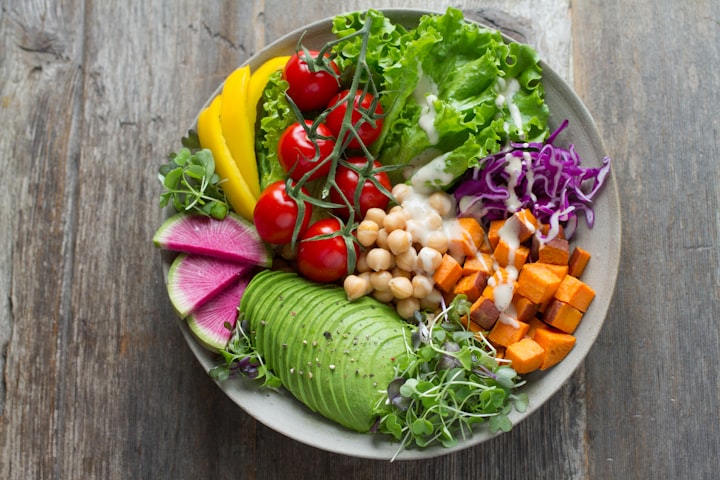What To Know About Vegan Diets
What To Know About Vegan Diets

They found that people who followed vegan and vegetarian diets had a lower risk of heart disease, but also had a higher risk of stroke, in part due to vitamin B12 deficiency. When the health effects associated with following plant-based diets were compared with following the American Diabetes Association diet plan, the results showed that although these two groups had better control of blood sugar, the vegan group had significant improvements.
Some of the weight loss benefits enjoyed by vegetarians can be attributed not only to diet but also to other factors. Some people find that replacing meat, dairy products, and eggs with fiber-rich vegan foods can also help them lose weight. A well-planned vegan diet, which includes nutritious and solid foods, helps ensure adequate levels of healthy eating. Additions to watch out for. Some vegans may find it difficult to eat enough of these nutritious foods or solid foods to meet their daily needs.
If a vegan diet cannot meet the vitamin B12 requirement in these foods, it is recommended that they take vitamin B12 supplements to avoid vitamin B12 deficiency, including anemia. It is very important to have a reliable source of vitamin B12 in the diet of pregnant and lactating women, infants and children. But vegetables should not worry, as everything except vitamin B12 and vitamin D is readily available in the vegetarian diet.
For this reason, carnivores need to consume vitamin supplements, fortified cereals, and fortified soy foods. Almost all foods, except alcohol, sugar, and fat, contain some protein. Vegan diets do not include animal products such as eggs, milk, meat, poultry, or seafood.
They also do not contain animal products such as honey (bee products) and unknown animal ingredients such as whey, casein, lactose, egg white, gelatin, carmine, shellac, animal vitamin D3, and -omega. The origin of the fish. -3 fatty acids. In the Western diet, many of the nutrients listed above tend to be related to animal products. However, people who eat only plant-based foods need to learn more about how to get certain nutrients, including iron, calcium, and vitamin B-12, which are commonly found in omnivorous foods. It is generally believed that vegan foods contain more fiber and lower cholesterol, protein, calcium, and salt than omnivorous foods. However, there may be some misunderstandings and concerns. They believe that meat, fish, eggs, and meat should be removed from our diet altogether. Dairy products.
You may have heard that vegans are not accustomed to a lack of protein as long as they eat enough calories and opt for whole, plant-based diets. Vegans can ensure that their daily protein needs are met by incorporating protein-rich plant foods into their daily diet. Vegans can get protein from nuts, peanut butter, seeds, grains, and vegetables.
Eggs and dairy products are good sources, and you do not need a lot of food to meet your protein needs. Many people rely on meat, eggs, fish, or dairy products as a source of protein - often a big part of their diet.
The inclusion of foods such as milk, yogurt, and eggs depends on the type of vegetarian diet. However, there are many options: some vegetarians may eat eggs and dairy products, while others may avoid one or both.
A vegan diet is another way to eat vegetables. Eat only plant-based foods and avoid all animal products (meat, seafood, dairy products, eggs, and sometimes honey and jelly). However, a vegan diet is a very vegetarian diet because it means avoiding all animal products, including meat, poultry, fish, dairy products and eggs, and low-fat snacks such as gelatin, butter, and sometimes honey. Vegetable or plant-based foods do not include all animal products, including meat, dairy products, and eggs.
When people eat right, a vegan diet can be very nutritious, reduce the risk of chronic diseases, and promote weight loss. It’s hard to miss the growing popularity of vegan diets and plant-based foods as everyone from athletes to health professionals to celebrities is expressing their benefits. And interest in veganism is growing by 2020, according to a report from the Cook Pencil Cooking website.
Of course, many people are interested in foods that do not include whole meat and animal products. Vegetarian and vegetarian diets appear to be the main dietary habits, but there is evidence that some people have followed a diet based on plants or vegetables for centuries. However, understanding the specific health effects of a vegan diet is often challenging because research into this dietary pattern is often combined with vegetarian or plant-based foods, both of which may include animal products.
However, people who follow these diets must make sure that they get the essential nutrients that people are accustomed to using in animal products. But even after this healthy diet has become the basis of your diet, one or more nutrients may not be enough. In addition to the fact that you may not get enough protein if you do not pay attention to proper nutrition, there are many other nutrients that you put at risk of losing a vegan diet. If you are going to be vegan, it is important to make sure you are getting enough vitamin B12, which is commonly found in meat, eggs, and fish, as without it, you will feel tired and weak.
Dietary sources of vitamin D include soy milk which contains vitamin D and rice milk. Calcium, essential for strong bones, is found in dark green vegetables, tofu made with calcium sulfate, calcium-fortified soy milk and orange juice, and many other foods commonly eaten by vegetarians.
Although a low animal protein diet may reduce calcium loss, there is currently not enough evidence to suggest that vegans have lower calcium requirements. Pets should eat foods high in calcium and/or take calcium supplements. Pregnant and Mammal Animals





Comments
There are no comments for this story
Be the first to respond and start the conversation.